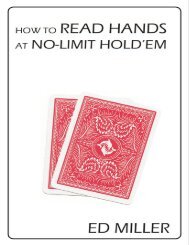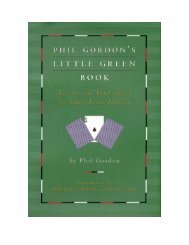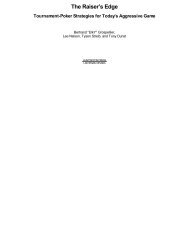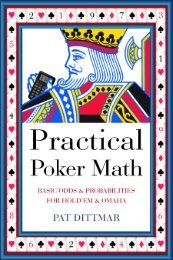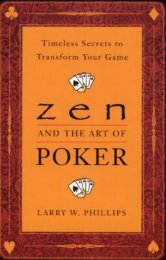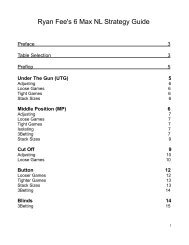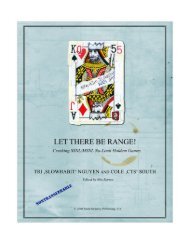Create successful ePaper yourself
Turn your PDF publications into a flip-book with our unique Google optimized e-Paper software.
I’ve found they're much easier for most people to use. It's much<br />
easier to think about 25% of a number instead of 22% of a<br />
number. When you’re a couple percentages off in your final<br />
answer, it’s not a huge deal for a couple reasons. First, a close<br />
decision is a close decision. In terms of EV, it’s not a large<br />
amount one way or the other. For example, let's say you needed<br />
45% equity to make a call. You estimated your equity and came<br />
up with 47%, so you called. Later you realized the more<br />
accurate answer given your assumptions was 44%, and you<br />
would have folded. If you were to calculate the EV for those<br />
numbers, you'd find out the results are very close to one another<br />
and matter little.<br />
The second reason estimates are ok is because you’re working<br />
with a guess on his range and are probably off at least a hand or<br />
two. This doesn't mean we get ridiculously sloppy, but we are<br />
working with an educated guess in real time.<br />
As you get practice examining these situations, you'll soon<br />
become very proficient estimating your equity against an<br />
assumed range, almost as if it were second nature.<br />
Quiz<br />
(Answers on pg. 181)<br />
1. Hero: J♠J♦<br />
Villain: 78, AT<br />
Board: 5♦6♣T♥<br />
What is hero's equity assuming we're all-in?<br />
87



